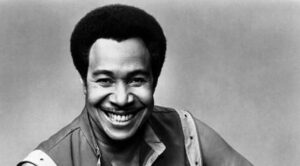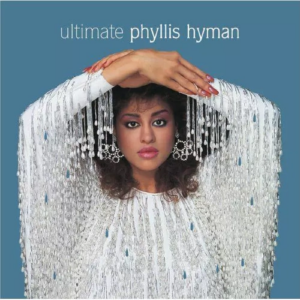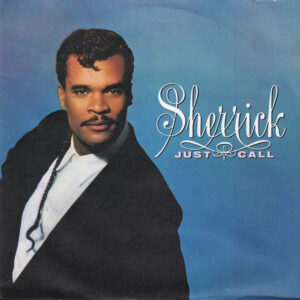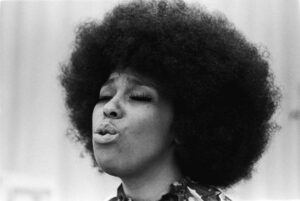Official Biography (courtesy of Columbia Records)
In 2009, the British singer-songwriter-performer Adele took home a pair of Grammy Awards–including Best New Artist–for 19, a highly acclaimed debut album of songs which introduced a new and authentic young voice to the world, expressing the bittersweet turbulence of adolescence awakening into adulthood.
With 21, one of 2011’s most anticipated releases, Adele comes of age with her second album, a collection of deeply personal songs, finely wrought and powerfully delivered, which communicate the power and glory of real love and real heartbreak through a range of musical moods and settings.
From the album’s first single, “Rolling In The Deep,” co-written with producer Paul Epworth and described by Adele as “a dark bluesy gospel disco tune,” through the fiery rumble of “Rumour Has It” to the orchestral builds of “Turning Tables,” the mysterious pop imagery of “Set Fire To The Rain,” the gospel-tinged “One and Only” and the tear-stained resignation of “Someone Like You,” co-written with Grammy-winner and track-producer Dan Wilson, Adele’s 21 is a musical and emotional tour de force, a portrait of the artist as a young woman coming into her own.
All of the album’s tracks, with the exception of a cool acoustic guitar rendition of The Cure’s “Lovesong,” were written by Adele over the course of a year, with the help of her musical collaborators: Paul Epworth (“Rolling In The Deep,” “He Won’t Go,” “I’ll Be Waiting”), Ryan Tedder (“Rumour Has It,” “Turning Tables,” ), Dan Wilson (“Don’t You Remember,” “One and Only,” “Someone Like You”), Fraser T. Smith (“Set Fire To The Rain”), Francis “Eg” White (“Take It All”), and Greg Wells (“One and Only”). The main of 21 was cut in Malibu with producer Rick Rubin (Johnny Cash, Jay Z, Red Hot Chili Peppers) and in Kensal Rise in London with Paul Epworth (Plan B, Bloc Party, Florence and the Machine).
Among the strengths and allure of 21 is the chance to get closer to the real Adele. “I think I come across moody and serious with my music,” she says, “but, in real life, I’m sarcastic and very cheeky. I really wanted at least one song on this album that was representative of me as a girl, as a person. I don’t think the playful me came across on the first album. It’s important to show growth and development.”
Drawing inspiration from her own life, Adele says, “I had the most poignant relationship in between these two records. I feel really blessed and lucky I was given that relationship and able to have it. Sometimes when I meet artists, they don’t seem to have any reality in their lives. It’s completely in a bubble that’s not allowed to be burst. I’m just screaming for my bubble to be burst. I met him and he was brilliant, it was a really great relationship and it went sour, obviously, because I made a bitchy record about him (laughs). He made me really passionate for myself, for him, for love, for life, for food, for wine, for film, for politics, architecture, traveling which I hate–I hate flying and stuff like that. He made me really really interested in just being alive, which I hadn’t felt yet. It was incredible. When I was promoting 19, I thought, ‘What the hell am I going to write about? Hotels? Air miles? I was very very lucky that life intervened.”
As much as 21 is about love’s rocky road, it’s also about finding peace in life’s turmoil’s. “That’s what the record is about,” says Adele, “and I’m just more forgiving because of it.”
Adele loved working with the top-flight producers, including Rick Rubin, who helped her create 21. “In the studio it was brilliant,” she says, “the band Rick put together was amazing. It’s all about the song. We could’ve been in 1920 or we could’ve been in 2060. It was all about the music, all about the song. We weren’t referring to anything that was going on that was popular or successful or relevant at that particular moment in time. It didn’t even occur to us about the glitter that you pour on something afterward or how you’re going to market and promote it and the video or the styling or the remixes or duets or something, It was just about the music which is completely overwhelming to be given the opportunity to make a record like this so early on in my career.”
Adele began prepping for 21 during her American tours promoting 19. Her tour-bus driver turned her on to a deep well of Americana, music from Nashville, “amazing country and blues and rockabilly and bluegrass and gospel.” Adele was introduced to the music of Wanda Jackson who had a “massive effect, couldn’t help it, it rubbed off on me” and the electrifying echoes of the “Angel with the Dirty Mouth” can be heard reverberating through Adele’s “Rolling In The Deep” and “Rumour Has It.”
Adele began to trace American country music past the obvious mainstream into more esoteric nooks. “Country is not a big deal in England,” she says. “It’s more of a niche thing.”
Adele, who used to “put on a song to cry to or laugh to or get ready to go out to,” began to listen to music in a new, more profound sense. “I was literally swimming in music for a whole solid month,” she admits. “Locked myself in my flat and just listened to music for the first time. Etta James and stuff like that. . I became obsessed with hip-hop, rappers and MCs and lyrical poets…manipulate words and make them rhyme or make a really mundane thing seem like the most incredibly exciting euphoric thing, you know what I mean?”
Between 19 and 21 lies a lifetime of experiences for Adele. “So much happened in my career,” she says. “It shattered all my expectations. No one was really expecting anything when I was signed, so that everything, whenever something happens, it surpasses what I was expecting.”
Born in London on May 5, 1988, Adele (née Adele Adkins) released her first single in October 2007. “Hometown Glory,” a song she’d written at age 16 in response to her mother’s suggestion she leave London to attend university, would go on to earn a Grammy nomination.
In December 2007, Adele became the first recipient of the Brit Awards’ newly inaugurated Critics Choice prize, presented to the year’s most significant artist who, at that time, had yet to release an album. She was also honored as the winner of BBC Music’s Sound of 2008 poll – a consortium of UK music critics, editors and broadcasters – as the most promising new musical artist likely to emerge in the upcoming year.
The early predictions of Adele’s success were superseded by the chart success and sales performance of 19 and its hit singles — “Chasing Pavements,” “Hometown Glory,” “Cold Shoulder,” and her version of Bob Dylan’s “Make You Feel My Love” — and sold-out concert performances including a headline slot at the Hollywood Bowl in front of 19,000 fans.
The line between 19 and 21 is crucial juncture in most lifetimes and we are fortunate to have an artist of Adele’s acuity and grace on-hand to give voice to those universal transformations. “To me,” she says, “music is all about relating. I would never dare write a song about success or anything to do with my career, because it doesn’t happen to many people. What I love about music is when I’m totally convinced that someone has written a song about me even if it was written 80 years before I was born. I would love it if someone felt that about one of my songs and I love it when people go ‘I thought you were inside my heart or inside my head, you know exactly what I’m feeling.'”









